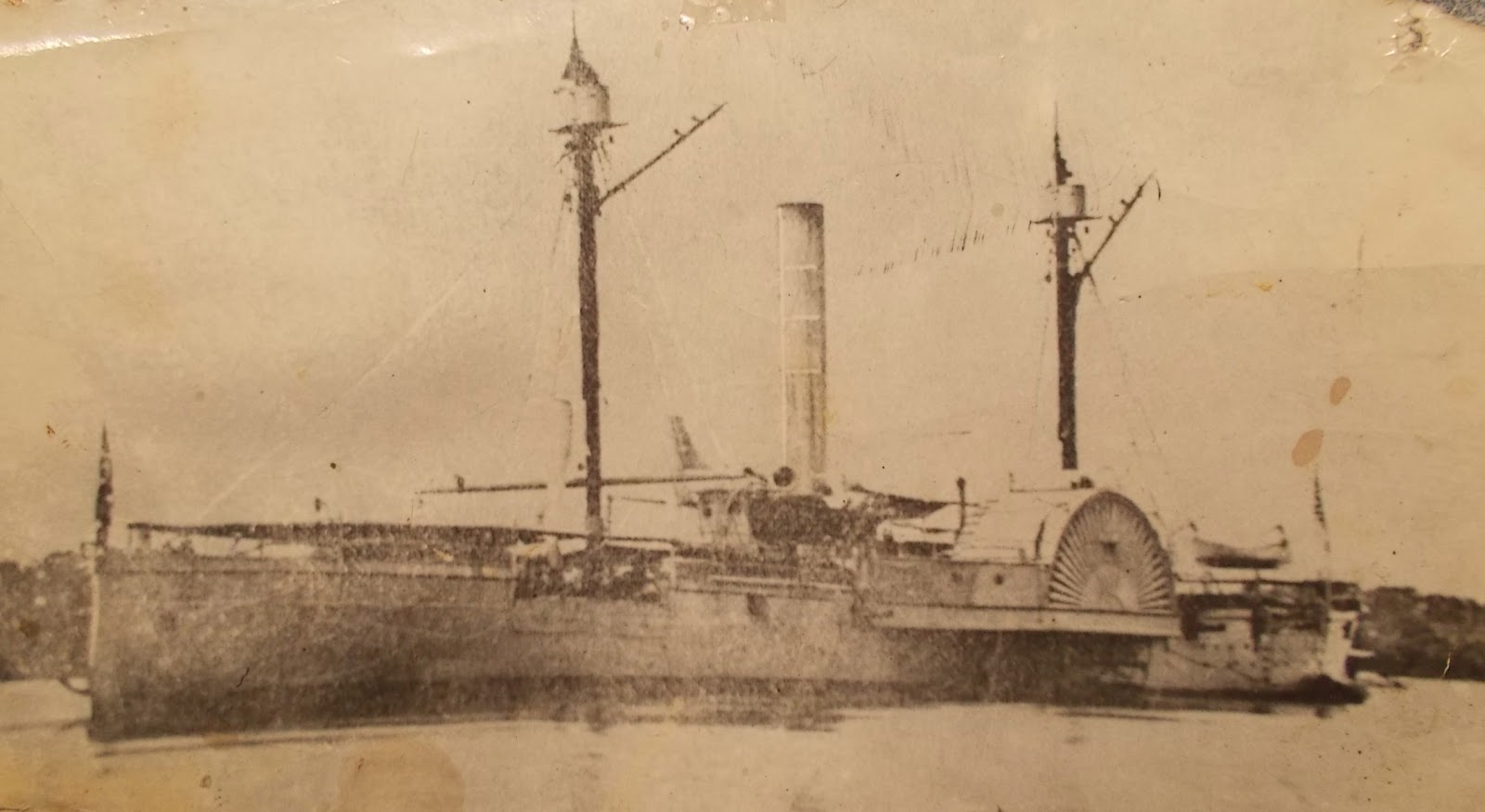by Thomas Kies
I was coming up blank for this week’s Type M for Murder blog, so I did what I usually do when I’m mentally blocked, I went for a walk. We live on an island here on the coast of North Carolina and no matter which direction I take, it’s beautiful.
Fate took me in the direction of the marina, just a few minutes away where there are picnic tables and benches that overlook the boats in their berths, the canal, and the entrance to Bogue Banks Sound. But before I got there, I was hailed by one of our neighbors who was sitting outside her house enjoying the perfect weather.
We chatted, as neighbors will do, and she told me about her role in creating a “History Trail” throughout our little municipality. One of the stories she told me was about a place up the beach that used to be the location of the Iron Steamer Pier. “Do you know that story?” she asked, with a twinkle in her eye.
I did not.
The Iron Steamer Pier was named for the SS Pevensey, an iron hulled, sidewheel steamer with a single deck and two masts and was schooner rigged. It was built for speed and was used as a blockade runner for the Confederates during the Civil War. The Pevensey had successfully run through the Union blockade near Wilmington and Cape Fear four times before their fateful last journey.
On June 9, 1864, they were carrying cargo for the Confederate army that consisted of arms, blankets, shoes, cloth, clothing, lead, and bacon. As before, they had left Bermuda with their cargo and were headed for Fort Caswell that guarded the port of Wilmington. However, on this voyage, they found themselves too far north, off course and, unbeknownst to them, heading into Union waters.
They stumbled across the path of the Union supply ship, the New Berne that began firing cannon shots at the Pevensey. Still thinking they were close to Wilmington and Confederate territory; they aimed their bow directly for land…our little island. They ran aground about a hundred yards offshore, and immediately took to their lifeboats, leaving one sailor aboard their ship.
While his shipmates rowed for shore, and what they thought was safety, the last man aboard was given the task to blow up the ship and its cargo to keep it out of Union hands. He rigged the boiler to explode, and it rendered the ship unrepairable. He managed to survive and was placed under arrest by the Union sailors.
The thirty-five-member crew who had escaped landed on Bogue Banks Island and thought they were safe. The crew was approached by a group on horseback who asked them why they’d blown up their ship. “To keep it away from the damned Yankees!” they replied. “How far are we from Fort Caswell?”
“Well, we ARE the damned Yankees.” And then they were promptly arrested and taken to the Union outpost at Fort Macon.
Is the dialogue accurate? I kind of made it up, but I write fiction, so sue me.
The Iron Steamer Pier, which was known for its fishing, was swept away by a hurricane some time ago and the wreckage of the Pevensey is still out there, still about a hundred yards offshore. Sometimes, at low tide, you can still see some of what’s left of the paddlewheels.
This part of the East Coast where we live has been called the Graveyard of the Atlantic. The waters here are treacherous, the currents are strong, and sandbars seem to move at will rendering charts useless. And of course, we’re a hurricane speedbump here so the weather adds another bit of spice. Throw in pirates, scoundrels, and warfare and you have enough for a whole slew of historical novels
My advice as a writer--keep your eyes and ears at the ready. There are stories all around us.

1 comment:
Forgive me for noticing a tiny element in this richness of story and stories: we must now use the plural pronoun for a ship as well as for a person? All those sailors who drowned off those very banks will rise on the last day stuttering: "When she went down...ah, when they went down...[expletive deleted]..she was a good ship, one of the best, she was..."
But thanks, Thomas, for reminding us that stories are all around, there for the taking.
Post a Comment